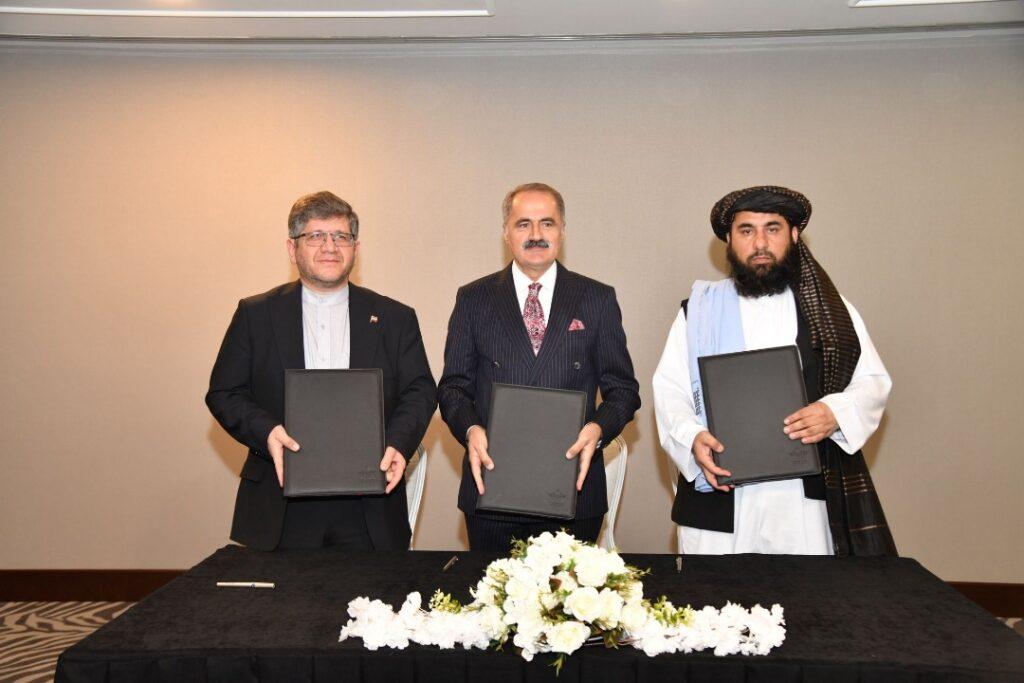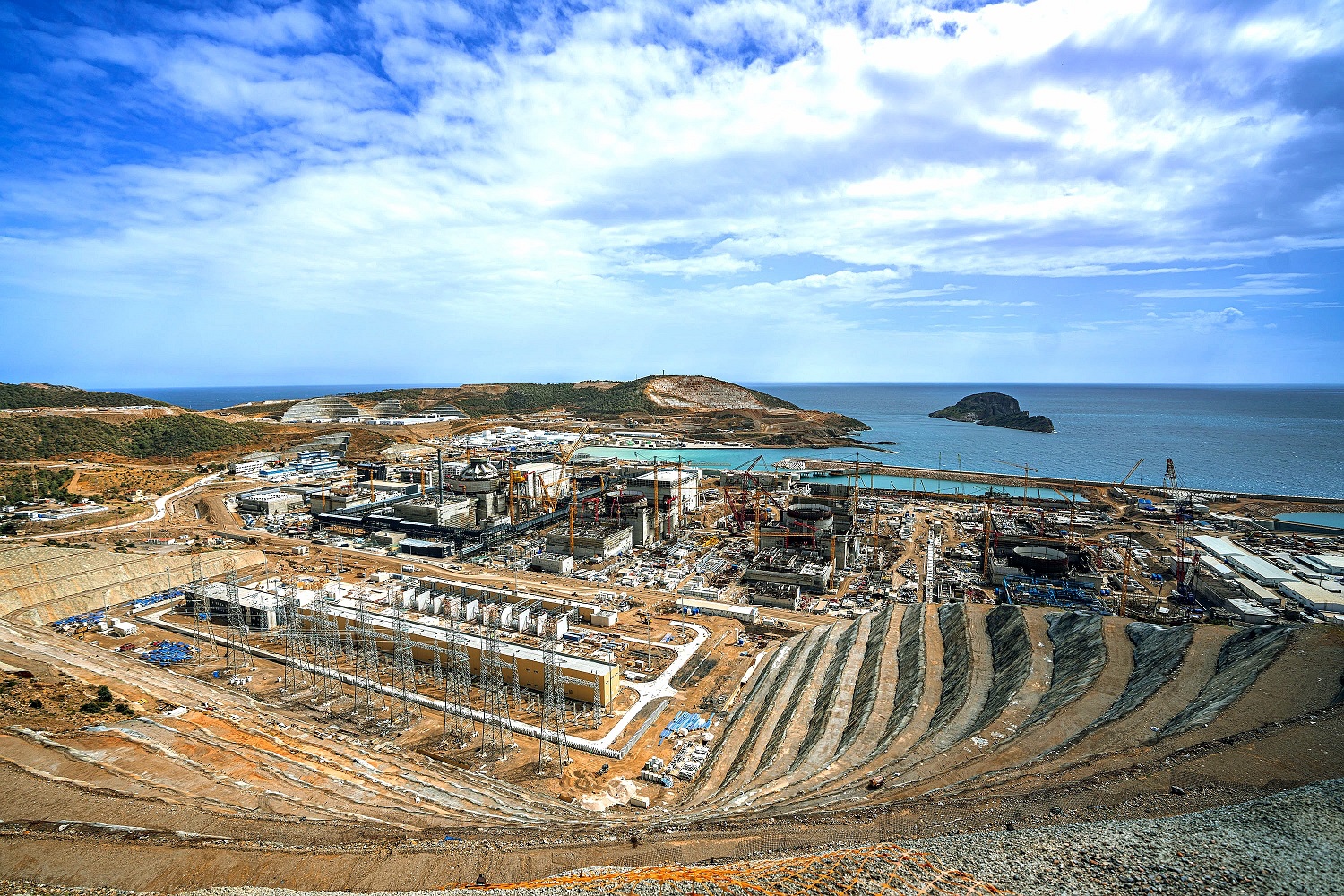
Türkiye Plans Canal That Could Undermine Montreux Convention
Türkiye Plans Canal That Could Undermine Montreux Convention
Executive Summary:
- Türkiye’s parliament is again discussing constructing a canal that would bypass the Turkish straits, undermining the 1936 Montreux Convention. The convention gives Türkiye the right to close the Turkish Straits to foreign military vessels in times of war.
- Moscow sees this potential canal as a threat to its national security because it could allow Western warships to enter the Black Sea in excess of the numbers and tonnage set by the 1936 convention.
- As Ankara moves to realize its goal of creating a canal that would be an alternative to the Bosphorus, potentially threatening the provisions of the Montreux Convention, Moscow is likely to do what it can to prevent this, relying in the first instance on domestic Turkish opposition to the idea.
Since the 1990s, Turkish leaders have called for the construction of a canal to the west of Istanbul between the Mediterranean and Black seas to take pressure off the Bosphorus Strait, which passes through the middle of Istanbul. The proposed canal would also circumvent the limitations on the passage of ships established by the Montreux Convention in 1936. In 2011, Turkish President Recep Tayyip Erdoğan made the construction of the canal a centerpiece of his national policies. The enormous costs of this enterprise (estimates now exceed $10 billion), environmental concerns within Türkiye, and security concerns from other countries, most notably Russia, have thus far hindered the construction of the canal (Kazinform, May 7). Last month, the Turkish government launched a new initiative to build the canal, having arrested some of its most prominent opponents and claiming that Ankara will secure funding from private sources, as the canal is expected to facilitate increased trade (Türkiye Gazetesi, October 10).
Moscow views this new push as having little to do with expanding commerce between the Black Sea and the Mediterranean. It instead sees it as an attempt to annul the Montreux Convention’s limitations, which would allow North Atlantic Treaty Organization (NATO) warships to enter the Black Sea and challenge Russia (Voenno-Politicheskaya Analitika, November 6). Russian analysts have signaled that the Kremlin will try to prevent the construction of the canal by playing up Turkish environmental concerns and stressing the consequences of circumventing or annulling the Montreux Convention (Fond Strategicheskoi Kul’tury, October 16). Moscow and its allies inside Türkiye have seemingly been successful in blocking the construction of the canal up to now, they appear to expect that they will be able to do so again, an attitude that may increase tensions between Moscow and Ankara in the coming months.
The 1936 Montreux Convention grants civilian ships from countries without a Black Sea littoral free right of passage through the Turkish Straits in times of peace and times of war. Military ships of non-littoral states can be present in the Black Sea only in peacetime, for a limited period, usually 21 days, and with a specific tonnage that is lower than many of the largest ships in NATO fleets. In recent years, NATO has regularly rotated ships through the straits into the Black Sea to maintain a presence and project power, but it has been unable to insert its largest vessels or submarines. The convention makes Türkiye responsible for ensuring these limits are maintained. The presence of Western navies in the Black Sea has been a constant irritant for Moscow. The Russian government has occasionally favored revising the Montreux Convention to exclude NATO ships from the Black Sea. Most of the time, however, the Kremlin backs this long-standing convention as the best way to constrain an unwelcome Western presence in the sea (see EDM, April 2, 23, 2019).
Senior Turkish officials now say the provisions of the Montreux Convention will not apply to ships, including military vessels, passing through the new canal, effectively doing away with the agreement once the 100-kilometer (approximately 62-mile) canal is operational (Voenno-Politicheskaya Analitika, November 6). These statements have angered the Kremlin, especially as Russia’s relations with the West have tanked following its full-scale invasion of Ukraine. Last year, Nikolai Patrushev, the former secretary of the Russian Security Council and now head of the Russian Naval Collegium, denounced the canal’s potential circumvention of the Montreux Convention as anti-Russian and promised that Moscow would respond unless Ankara changed course (Window on Eurasia, November 6, 2024). More recently, Russian commentators have suggested that the canal is part of a broader Western policy aimed at isolating Russia, stating that Moscow can and will push back, echoing earlier Russian arguments against any changes to the status of the Montreux Convention (see EDM, October 1, 2019; TopWar.ru, August 14).
At present, Moscow appears to have concluded that it has more hope of torpedoing the canal by exploiting domestic Turkish opposition than by attempting to involve the international community, given that a large part of it would be pleased if NATO could send larger and more numerous military vessels to support Ukraine. The Kremlin has compelling reasons to believe that this approach may yield success. Polls indicate that Turks, in general, and residents of Istanbul, in particular, are opposed to the canal on environmental grounds (Turkish Minute, May 2; Kazinform, May 7; Istanbul Homes, May 8). The mayor of Istanbul, a prominent critic of the proposed canal, as well as other opponents of the idea, have been arrested (Voenno-Politicheskaya Analitika, November 6). Leaders of central Turkish banks have indicated that they will not try to raise private funds for the construction of the canal (Fond Strategicheskoi Kul’tury, October 16). Both the opposition in parliament and numerous former senior Turkish military officers have come out in opposition to the canal (TASS, April 4, 2021). Moscow is likely to try to bring that opposition to a boil if, as expected, Erdoğan presses the case in the coming months.
The Turkish president appears to be fully committed to the canal. Erdoğan has repeatedly said that what he calls the Istanbul Canal is comparable in importance to the Suez and Panama canals. He asserts the current passage on the Bosphorus through the center of Istanbul is not large enough to handle the growing number of ships—now approaching 50,000 a year—passing through it. Erdoğan may be correct on both counts, but that means little to Moscow if the Turkish leader uses the occasion to declare the Montreux Convention a dead letter. Russian opposition to that makes it likely that Moscow will continue to play up or even produce more opposition to the canal within Türkiye. If so, the construction of the canal is unlikely to start anytime soon. If Erdoğan continues to push for it, he may have to compromise on Montreux, possibly by expressing a willingness to extend the convention’s provisions to the canal in exchange for Russia’s support. Such an arrangement would open the door to more north–south trade between the Mediterranean and the Black seas without unsettling a security arrangement that has been in place for almost 90 years.


